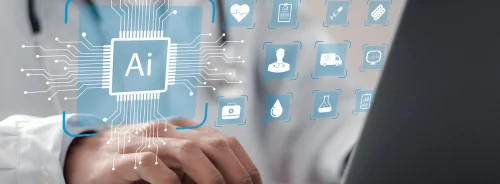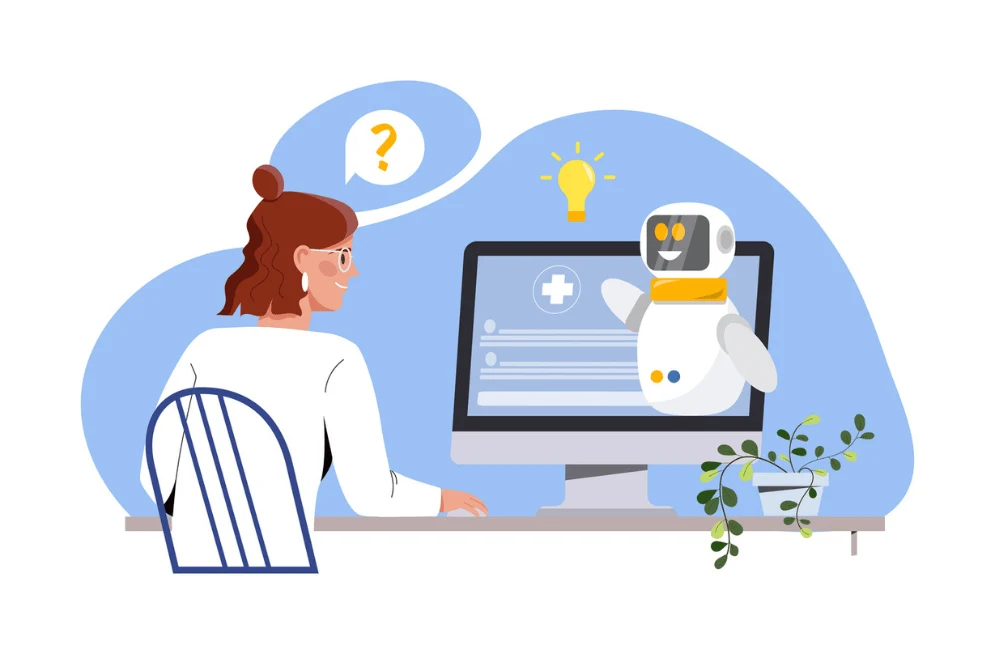Chatbots have become integral to various industries, including marketing, real estate, finance, and healthcare. Their ability to provide instant responses and handle multiple users simultaneously makes them invaluable. Chatbots enhance patient care by offering symptom diagnosis, mental health consultations, and nutrition tracking services. This article explores the significance of chatbots in healthcare, their top use cases, and future trends.
Why Are Chatbots Important in Healthcare?
Chatbots play a crucial role in healthcare by offering several valuable features. One of the most significant advantages is monitoring. Chatbots can track user behaviour, anxiety, and weight changes, encouraging healthier habits. They offer a level of anonymity, which is particularly beneficial for sensitive issues like mental health. Personalisation is another key feature, with chatbots utilising mobile sensors to measure physical vitals and facial recognition to understand patient behaviour. Real-time interaction ensures immediate responses, notifications, and reminders, enhancing patient engagement. Additionally, chatbots provide scalability, allowing healthcare providers to interact with numerous patients simultaneously. Platforms like Zoho's SalesIQ facilitate this by offering centralised storage of patient data and ensuring compliance with HIPAA rules for data security.
Top Chatbot Use Cases in Healthcare
- Provide Medical Information
Chatbots are trained on extensive healthcare data, including disease symptoms, diagnostics, and treatments. For instance, chatbots use public datasets like COVIDx for COVID-19 diagnosis and the Wisconsin Breast Cancer Diagnosis (WBCD). These chatbots understand user questions and provide accurate answers based on their training data.
- Schedule Medical Appointments
Integrating chatbots into medical facility databases allows them to extract information about suitable physicians, available slots, clinics, and pharmacies. Patients can interact with chatbots to describe their health issues, find matching physicians, and schedule, reschedule, or cancel appointments. Chatbots can also integrate with device calendars to send reminders and updates about medical appointments.
- Collect Patient Data
Chatbots can efficiently collect patient information by asking simple questions about their name, address, symptoms, current doctor, and insurance details. This information is then stored in the medical facility database, facilitating patient admission, symptom tracking, doctor-patient communication, and medical record keeping.
- Handle Insurance Inquiries
Chatbots assist patients and insurance plan members with insurance services and healthcare resources. Chatbots can automate insurance claims processing and healthcare billing by integrating robotic process automation (RPA) or other automation solutions.
- Provide Mental Health Assistance
Mental health chatbots are trained to deliver cognitive behavioural therapy (CBT) for patients with depression, post-traumatic stress disorder (PTSD), and anxiety. They also help autistic patients improve their social and job interview skills. Users can interact with these chatbots via text, microphones, and cameras.
- Request Prescription Refills
Chatbots collect patient information and submit refill requests to doctors. They inform patients when a refill is available and due, allowing doctors to process prescription refills in batches or automate them when doctor intervention is unnecessary.
The Future of Healthcare Chatbots
The healthcare chatbot market is expected to grow significantly, with chatbots becoming essential in healthcare delivery. The global COVID-19 pandemic has highlighted the need for chatbots to provide healthcare assistance without risking healthcare workers. Chatbots can direct patients with severe symptoms to facilities with available acute-care beds, provide round-the-clock information about COVID-19, and offer mental health support to cope with pandemic-related stress. This experience will likely increase the healthcare industry's reliance on chatbots and open up new implementation opportunities.
Chatbots are transforming healthcare by offering immediate responses, personalised care, and scalability. They provide valuable services such as medical information, appointment scheduling, patient data collection, insurance inquiries, mental health assistance, and prescription refills. As the healthcare chatbot market grows, these digital assistants will play an even more critical role in enhancing patient care and improving healthcare delivery.
Source Credit: AI Multiple
Image Credit: iStock






